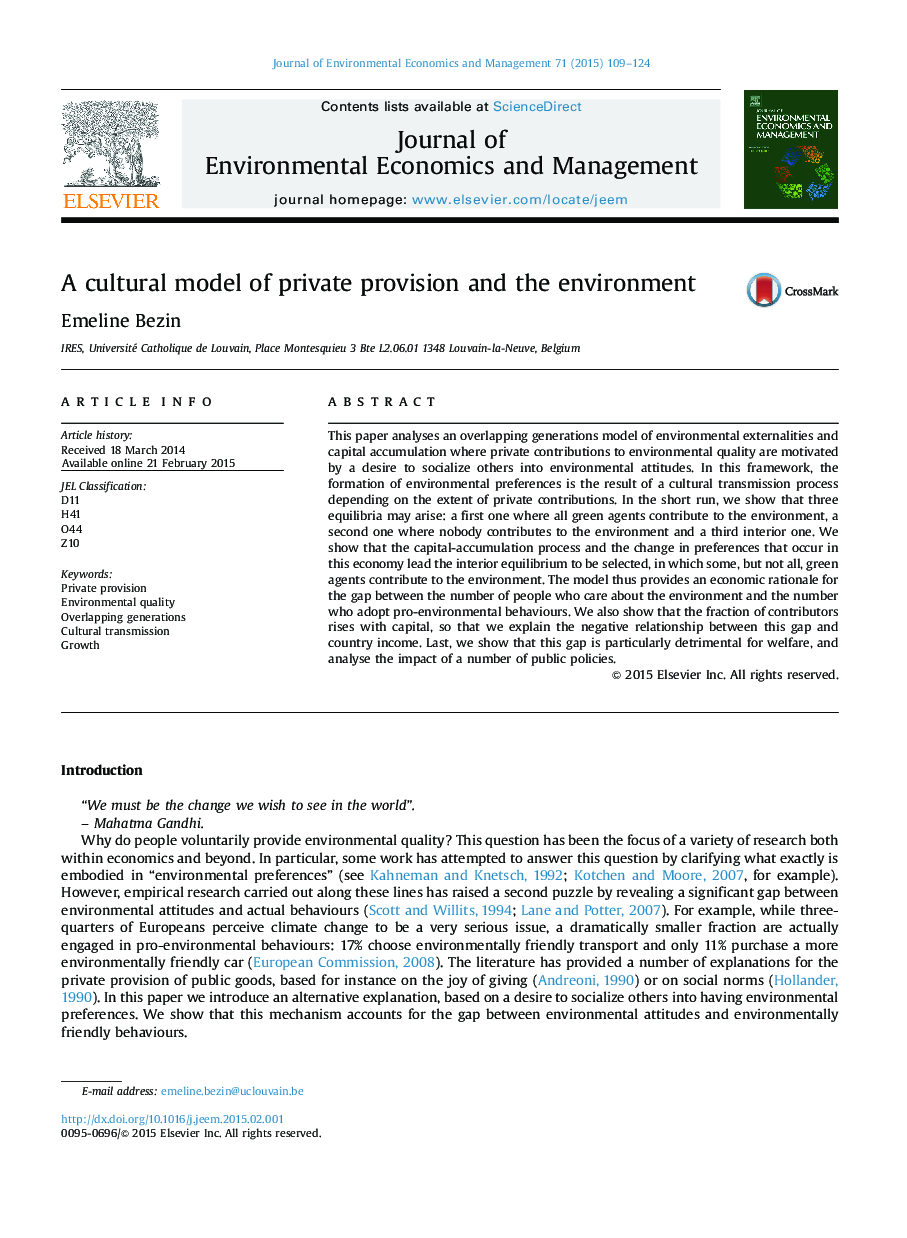| Article ID | Journal | Published Year | Pages | File Type |
|---|---|---|---|---|
| 959153 | Journal of Environmental Economics and Management | 2015 | 16 Pages |
This paper analyses an overlapping generations model of environmental externalities and capital accumulation where private contributions to environmental quality are motivated by a desire to socialize others into environmental attitudes. In this framework, the formation of environmental preferences is the result of a cultural transmission process depending on the extent of private contributions. In the short run, we show that three equilibria may arise: a first one where all green agents contribute to the environment, a second one where nobody contributes to the environment and a third interior one. We show that the capital-accumulation process and the change in preferences that occur in this economy lead the interior equilibrium to be selected, in which some, but not all, green agents contribute to the environment. The model thus provides an economic rationale for the gap between the number of people who care about the environment and the number who adopt pro-environmental behaviours. We also show that the fraction of contributors rises with capital, so that we explain the negative relationship between this gap and country income. Last, we show that this gap is particularly detrimental for welfare, and analyse the impact of a number of public policies.
